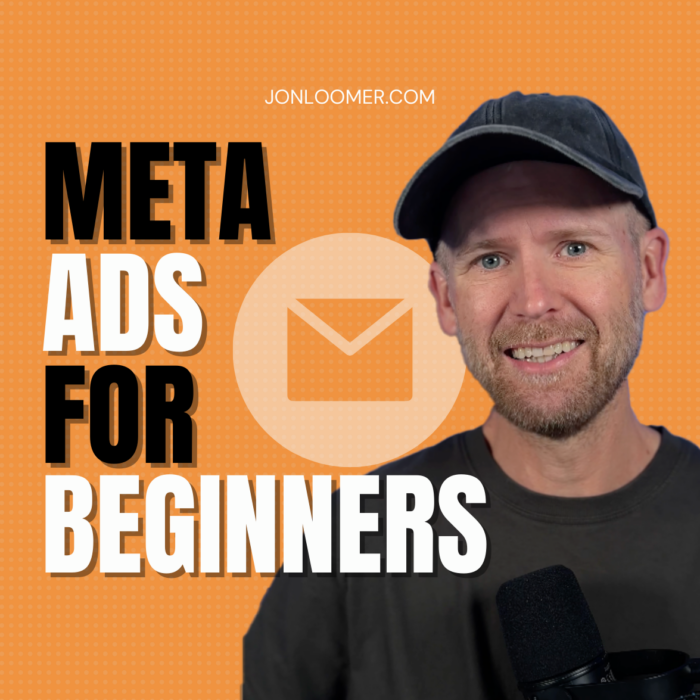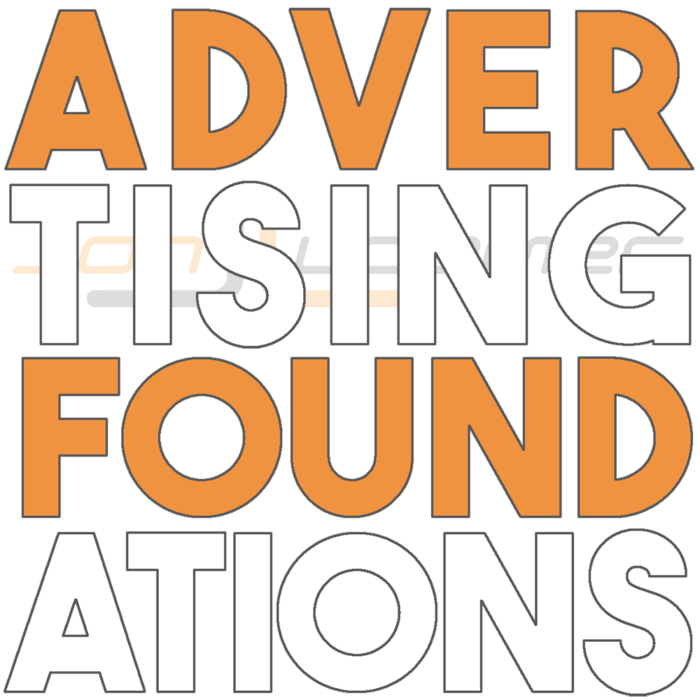Facebook users have the ability to add a hashtag to posts as a way to aggregate conversations around a single topic. Anyone who has used Twitter is familiar with this. Everyone else will need to get up to speed.
Here’s a simple example, using the hashtag #facebookmarketing:
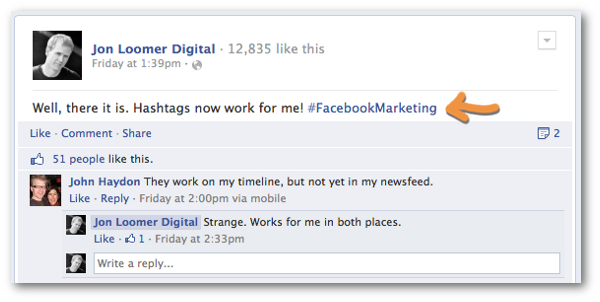
If you were to click on that hashtag, you’d see all discussions (public or that fit what you are meant to see due to privacy settings) that used it:
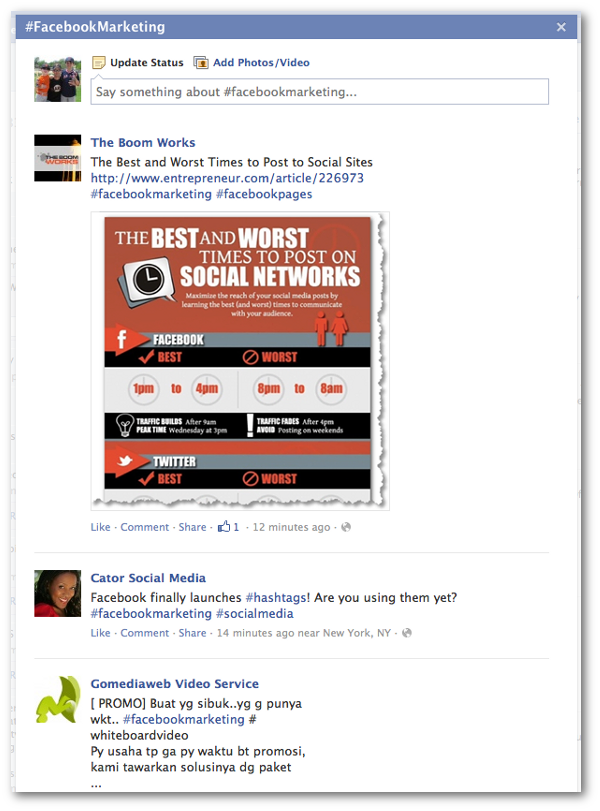
As mentioned earlier, hashtags do not overrule privacy settings. What you see may be different than what I see. You’ll see all public conversations and those the author allows you to see.
Brands have significant opportunities here. But there is also an opportunity to screw it up. Here are a few thoughts on brands using hashtags on Facebook…
1. Don’t Overuse Hashtags
Understand that the typical user is seeing these for the first time. They aren’t Twitter pros. They are going to be confused. If every other word is a hashtag, it’s going to be annoying.
Use one or two. Don’t write a paragraph of hashtags. It may increase reachReach measures the number of Accounts Center Accounts (formerly users) that saw your ads at least once. You can have one account reached with multiple impressions. More, but it’s spammy and you won’t get the positive response you’re looking for.
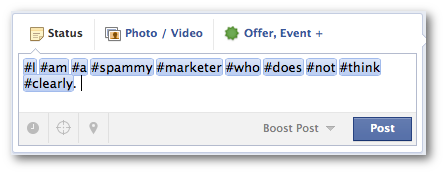
2. Use Hashtags to Add Value
Have the reader in mind first and your business second. If you’re thinking about the reader, the hashtag will enhance your post. If you are thinking about your business first, it will be a distraction.
If your post is about a single topic, create or use a hashtag related to it for further discussion. It must be relevant.
Understand that if your post doesn’t add value, you are simply adding noise to that hashtag’s stream. And the hashtag itself adds noise to your post.
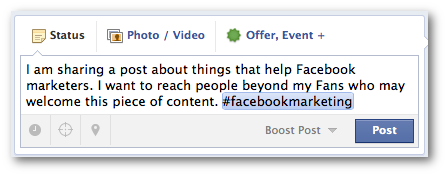
3. Keep Hashtags Short
It needs to be something that is easy to read and remember. Avoid slang and hard-to-spell words.
While short is better, abbreviations could create issues as well. For example, posts will get split up between #fbmarketing and #facebookmarketing. Or #fbads and #facebookads.
Use the hashtag that makes the most sense. If you want to create a conversation, keep it unique. If you want to join a conversation, use a popular one that is relevant.
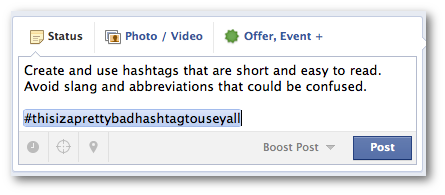
4. Most Special Characters Don’t Work
Don’t use spaces or special characters in your hashtag. The linkable portion will stop before that character. The only exception is the underscore (“_”).
While using capital letters will make your hashtag easier to read, they aren’t case sensitive.
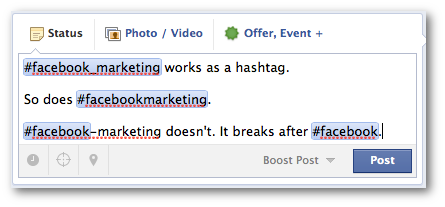
5. Consider Niche vs. Popular
I fully expect most brands to latch onto the most popular hashtags. The goal will be Reach. They will be abused. And those streams will be spammed like crazy.
Again, think about this from a user’s perspective. Why would you follow a popular hashtag filled with spam and irrelevant content? You wouldn’t.
So feel free to create your own. Niche is okay. The purpose should either be to organize your own content under a hashtag or to reach a very specific group of users with your content.
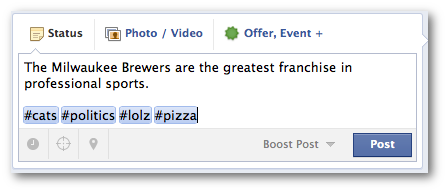
How Are You Using Hashtags?
This is just a sampling of thoughts around how you could and shouldn’t use Facebook hashtags for your brand. How will you be using them?




